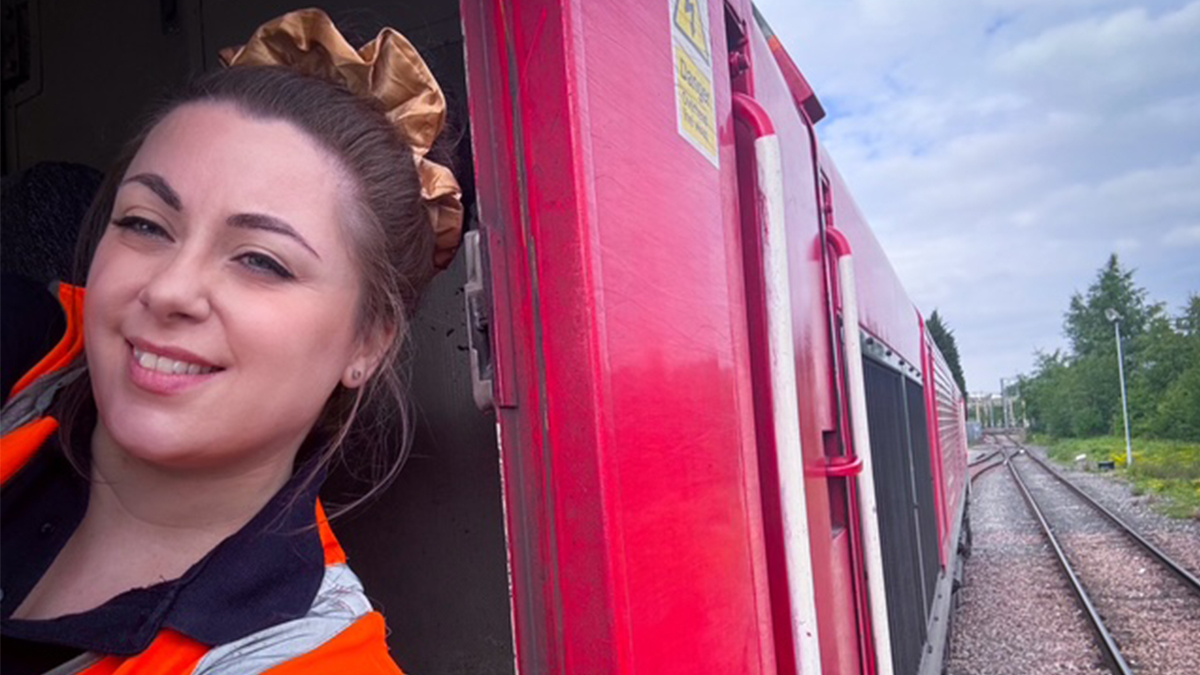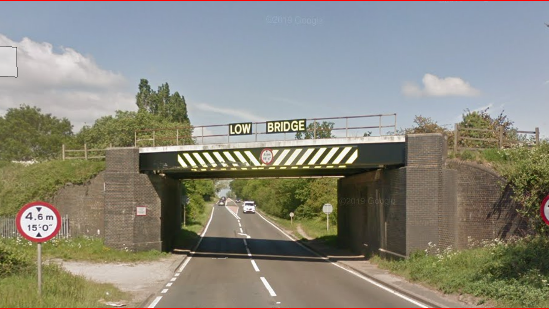Meet Amy, a freight train driver for the rail freight company DB Cargo. Amy used to be a midwife but a passion for transport led her to a rewarding career change in rail.
Find out why she loves her job and the railway, and why freight is more important now than ever …
What first attracted you to a career on the railway? And how did you do it?
I’ve always been fascinated with the railway and often wondered how it worked behind the scenes. Plus, I’m very into modes of transport and have a soft spot for trains. So, I seriously began applying to become a freight train driver when I wanted a career change.
I searched every day and eventually struck success in November 2022 with my current role.
What does a typical day look like?
No day is the same. There is so much variety in the work and shift patterns that a ‘typical day’ doesn’t really exist.
I do a lot of shunting. This is the process of using a locomotive to move freight wagons to different areas of a yard or putting the wagons together to form a train.
I also sometimes travel on passenger trains to relieve a freight train driver somewhere. I then carry on driving the train to schedule, either to its final destination or to the next driver’s relieving point.
I’m also learning a lot of freight routes so I can eventually take on more driving tasks
What’s been your proudest moment?
It was probably completing my first solo drive. I was super nervous but so proud of myself. I finally felt it all come together after training for so long. What made it more special were my parents coming to see me drive through a station. It’s a memory I will never forget.
What’s been particularly challenging?
I think the initial training was the most challenging part. I had no previous knowledge or experience so I learnt everything from scratch. However, it was an exciting challenge and I enjoyed it. Every day is a school day on the railway and I’m learning something new all the time.
What inspires you to work in this industry?
It’s truly inspirational that the railway is its own family. Everyone is so supportive of each other – whether they’re railway workers or enthusiasts. I haven’t seen any other industry like it.
Why is the freight industry so important?
Freight is so important because it’s better for the environment. I never realised how important it was until I joined the industry. One jumbo freight train can remove up to 129 heavy goods vehicles of the road. Moving more freight onto the railway will help the government reach its goal of net zero carbon emissions by 2050.
What’s been the biggest surprise about working in this industry?
The biggest surprise was learning just how complex the railway is. People on the outside may not realise what it takes to get just one train from A to B safely and on time. There are so many people behind the scenes like signallers, engineers and drivers. It still blows my mind.
What are the key skills you need for your role?
The ability to remain focused for long periods of time is a must. Driving a train – whether it’s freight or passenger – requires a lot of concentration. You also must remain calm under pressure and communicate effectively. You should be comfortable being on your own for long periods of time. And be able to work in shifts because it’s not a normal nine-to-five job.
Where do you see yourself in five years?
I would like to become a passenger train driver in the future. I’m always keen to learn new things and I would love to see how it works on the passenger side. Who knows but I’m very excited to see where my career goes. I hope I’m still driving trains till the day I retire.
What advice would you give to anyone looking for a similar career?
Just apply. I’m proof that you don’t need any previous experience. Many of the skills I had as a midwife were easily transferable for freight driving. Such as my ability to work in high pressure situations and deal with lots of responsibility. So, my advice is to consider any transferable skills you have for the role and apply. And keep persevering even if you are rejected. It’s worth it in the end.




